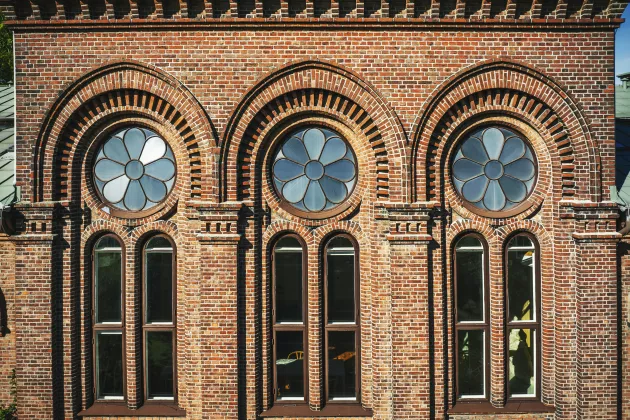Truisms
Martin Cloonan emphasised the importance of the three Pufendorf principles and delivered some “truisms”:
If you let academics alone and get on with it, things will get done!
Both these truisms tap right into the Pufendorf “no-expected deliverables principle”. It means that groups working at the Institute commit to work together towards set goals but without the requirement to produce specific research output. This encourages the exploration of new ideas.
During the interviews the panel saw several examples of transformative experiences both in terms of research and the scholars themselves. The time to reflect and to consider the research questions in a new light sometimes propelled the problem in unexpected new directions.
Britta Padberg took us on a historic journey of five generations of IAS worldwide, via the overarching question “What is interdisciplinarity?” to placing Pufendorf IAS in both these contexts. Her “Vision for a [our!] vibrant institute”:
“Pufendorf IAS as the Intellectual Center of the University. At the Pufendorf:
• the most exciting minds gather
• new research collaborations are formed
• young scholars are inspired
• current debates are conducted
• theorists and practitioners meet”
She also noted that this is not easy, and developing the common language, trust and a unified understanding of the problem at hand. It requires dedication and openness. A strong case for interdisciplinarity at IAS was made where the bottom-up approach is one key enabling interdisciplinarity together with the freedom to define output and development of concepts and ideas.
Not as easy as it sounds?
What happens when researchers create their own teams, choose the research topics and set their own goals? What happens when interdisciplinary teams have the freedom to plan and structure their work to enable them to form and develop their ideas?
Caroline Hallin and Magnus Larsson, both members from last year’s Themes at Pufendorf, reflected on what they learned from their Themes. Scholarly expectations on the topic, and on the potential benefits to the participants in terms of networks, career dimensions or other deliverables are important, but also the need for an understanding of the shared knowledge were highlighted. The subtle changes in language, and the respectful acknowledgment of disciplinary and cultural differences were discussed in addition to the hard work, patience, tolerance and courage that needs to be poured in from all members within the group.
The Pufendorf days when we had conversations filled with constructive friction, those were the best.
One could almost hear our audience mumble in agreement. Constructive friction. Not to be feared. Something to gear up for.
In our audience
We were delighted that so many of former Pufendorf Theme and ASG members could make room for the Symposium in their busy October schedules. A quote from Martin Cloonan seems appropriate:
About the people mentioned in the text
The international evaluation panel included Prof. Martin Cloonan, Director of the Turku Institute for Advanced Studies in Finland; Dr. Britta Padberg, Managing Director of The New Institute in Hamburg, Germany; and Prof. Richard Taylor, Professor of Physics, Psychology, and Art at the University of Oregon, USA.
Caroline Hallin, Associate senior lecturer at Lund University Faculty of Engineering, coordinator for the Pufendorf Theme Coastal Perspectives (2023-2024)
Magnus Larsson, Associate Professor at Lund University School of Economics and Management and member of the Pufendorf Theme Roadmap of Biomaterials 4.0 (2023-2024)
About the Pufendorf principles
Read the article about Pufendorf IAS' sustainable principles on our webb page:
The Pufendorf Institute's sustainable principles | The Pufendorf Institute for Advanced Studies


